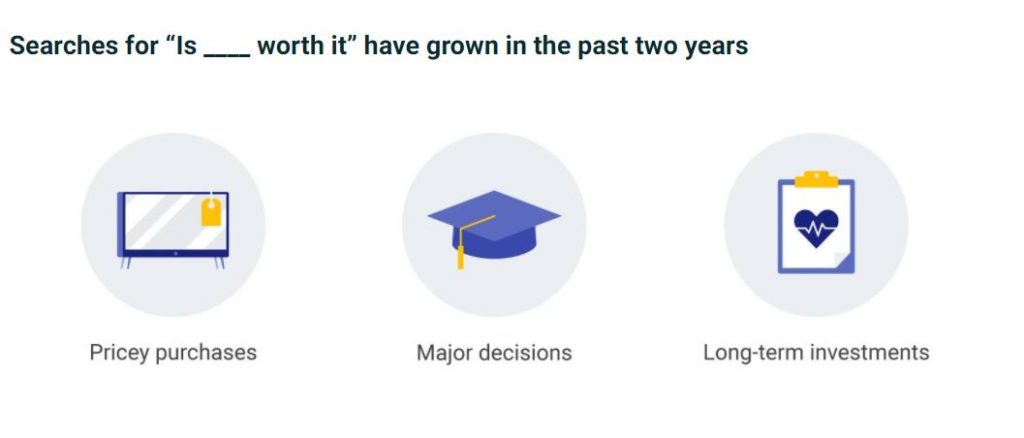If I were to tell you that internal search data shows growth in consumers searching for products “to avoid” and “worst,” it might make you a little uncomfortable. As a marketer, that reaction is only natural. But in your day-to-day life as a consumer, you know it makes sense. What you also need to know is that this provides an opportunity for your brand to influence the outcome.
Think about it. When we’re shopping, we often turn to friends or acquaintances we trust for a gut-check. We want to affirm our decisions. We want to steer clear of making the wrong choice. And more and more of us are using search to fill that need.
By now, it’s become clear that mobile is creating numerous shifts in people’s search behavior. Our most recent micro-moments research has highlighted a number of these changes. Today's super-empowered consumers have become more impatient, more demanding, and more curious—and these shoppers are all hungry for advice.
A big part of that desired advice? What not to buy.
At Google, we’ve seen 1.5X more mobile searches ending with “to avoid” in the past two years.1 For example, consumers are looking for “cooking oil brands to avoid” or “refrigerators to avoid.” And just as there has been growth in mobile searches for “best,” we’ve also seen growth in mobile searches for “worst.”

Shoppers searching these terms shouldn’t necessarily be lumped in with negative e-commerce reviewers or outraged social media posters. They are just savvy shoppers doing their due diligence. It’s become the norm for people to do an analysis for every decision they make. As one person told our research team, “There's no limit to the information available, you just have to know what to take into consideration before you lay out your money for something.”
People want to feel confident and ensure that the choice they’re about to make is worth it for them—literally. In fact, “is ____ worth it” is another area that’s seen growth on mobile search (over 80%) in the past two years.2 We’ve seen these searches for pricey purchases (electronics), major decisions (law school), and long-term investments (life insurance). “Is ____ worth it” searches have also grown on the other end of the spectrum—think organic milk, electric toothbrushes, and synthetic oil.
Searches for “Is ____ worth it” have grown in the past two years

Clearly people just want to be well-informed about their purchase decisions, big or small. And this plays out with searches on YouTube as well. Watch time of “does it work” videos grew by more than 11X in the past two years as consumers seek out visual proof that the items they’re considering are worth it.3 They’re watching everything from “The Low Calorie Diet for Weight Loss: Does It Work?” to “Does It Work? Ice Cream Maker Makes Real Food for Disney Frozen Queen Elsa and Anna Dolls.”
Marketers already monitor social media and review sites to see what people are saying about their products. Doing the same for search behavior can give you another window into the mind of your customers. Don’t be afraid of exploring what comes up if you monitor your brand and the phrase “to avoid.” How people are searching for your brand or category can help catch potential issues, identify areas for improvement, and uncover new ways to talk to your consumers and address their concerns. And if you see that people are questioning whether your brand or category is worth it, consider creating and promoting content that tells people why it is.

